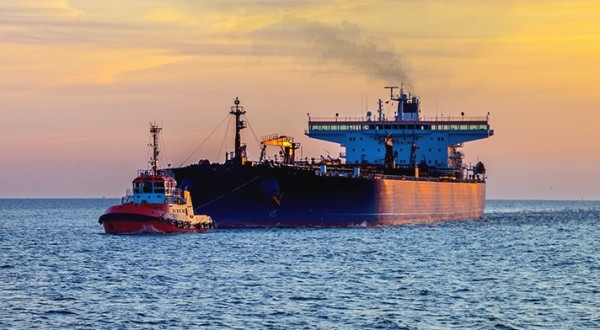The International Maritime Organization (IMO) and the World Shipping Council (WSC) have responded to the controversial study by InfluenceMap, regarding the IMO’s approach to tackling carbon emissions from shipping.
Namely, the report claims that the shipping industry has deliberately blocked international efforts towards climate change, by creating lobby groups to keep shipping out of the Paris Agreement.
“ICS, alongside BIMCO and the World Shipping Council, have collectively lobbied to delay implementation of any climate regulations until 2023 – even then refusing to support anything but voluntary regulations that may not reduce the sector’s overall greenhouse emissions.”
In response, the World Shipping Council said that the report seriously misrepresents its approach to reducing carbon emissions from shipping and that WSC has actually offered concrete proposals for both short and long-term carbon reductions.
In April of this year, WSC co-sponsored submittal MEPC 71/7/4, which proposed the following three core approaches to reducing CO2 emissions: Establishment of an International Maritime Research Board with a mandate to direct and fund research of new and improved marine propulsion systems, electric generation plants, fuels, and ship design; periodically reviewing of EEDI standards to promote the introduction of increasingly carbon-efficient tonnage in the maritime fleet; and investments in energy-enhancing technology, WSC claimed.
Further, IMO Secretary General, Kitack Lim, also added his voice, noting that the make-up of national delegations to IMO is entirely a matter for the countries themselves, and those countries who wish to include industry technical experts or others may do so.
“Neither the IMO Convention, nor any of the Rules of Procedure for individual meetings limits, in any way, Member States’ ability to structure their delegations as they consider most appropriate in order to carefully consider the issues before them. “
Further, he noted, the range of NGOs represented at IMO are selected by the Member States based on their ability to substantially contribute to the work of the IMO through the provision of information, expert advice and representation of large groups whose activities have a direct bearing on the work of IMO.
“Participation of organizations representing so many different viewpoints provides a balance that adds considerably to the credibility of the Organization’s overall output. This inclusiveness is one of IMO’s great strengths,” he concluded.
Later on the same day, Influence Map responded to IMO statement, pointing out that the extensive influence the shipping sector has over the IMO suggests this balance is clearly tilted in the favour of shipping industry interests. Further, Influence Map claims their research shows the positions these corporate interests take suggest they are actively working to oppose meaningful policy progress to address the impact of the shipping sector on global climate change.
Responding also to WSC, Influence Map said that in WSC’s policy submission on climate action, (MEPC) 71/7/4, the WSC offers three proposals to reduce emissions in the shipping sector, none of which include binding sector-wide greenhouse gas (GHG) emissions reduction targets or caps.
Concluding, Mr. Dylan Tanner, Executive Director, InfluenceMap, noted: “InfluenceMap has a systematic and data-driven approach to assessing corporate and trade association engagement with policy and regulations. It has been applied successfully to drive objective debate and positive change within the global climate policy agenda. We certainly hope this can happen in the context of global shipping and stand by the conclusions of our report.”






























































